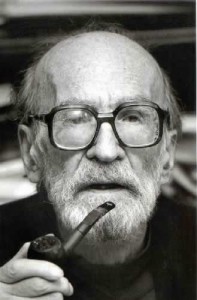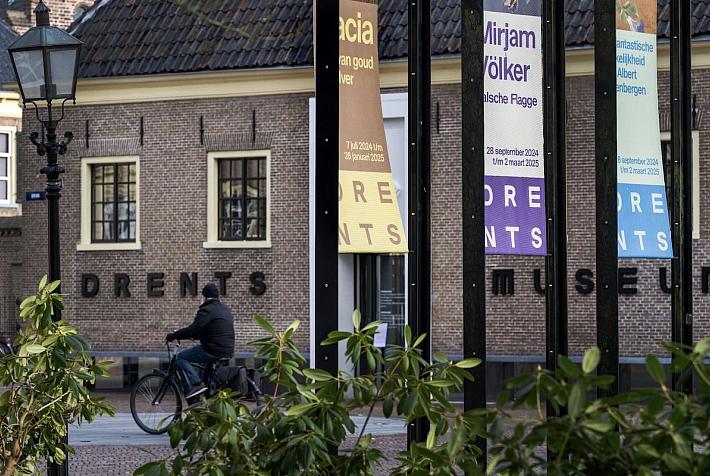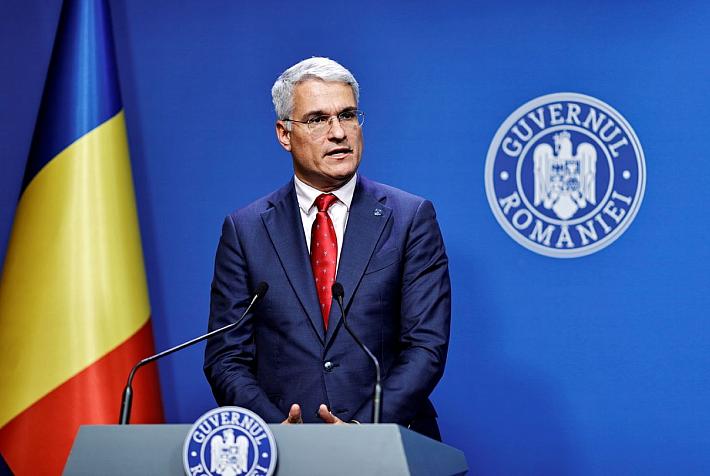Famous Romanians: Mircea Eliade. Youth without youth

 Mircea Eliade was a famous Romanian historian of religions, fiction writer, philosopher, journalist, essayist and professor at the University of Chicago. His theory of the eternal return has become one of the most influential contributions to religion studies. By Alexandra Fodor Mircea Eliade was born in 1907 in Bucharest, Romania. In 1925, he enrolled at the University of Bucharest where he studied philosophy. For nearly two years (from the end of 1928 until September 1930), he studied Sanskrit and Indian philosophy at the University of Calcutta. In 1933, he received a PhD in philosophy with a dissertation on the comparative history of Yoga techniques. Eliade is known for having imposed a tough schedule on himself when he was young - he was sleeping only around four hours a night and the rest of the time he was reading or writing. The same year, he became an important literary figure in Romania after the publication of his successful novel Maitrey (Bengal Nights). In 1945, he moved to Paris to teach at the Sorbonne University and in 1957, he was appointed professor and head of the History of Religions Department at the University of Chicago, where he taught until his retirement in 1983. In 1949, he earned international fame with his book The Myth of the Eternal Return, an interpretation of religious symbols. The English editions of his book were sold in over 100,000 copies. His many books include novels, short stories and works on the history of religion. The most popular books are The Novel of the Nearsighted Adolescent (1927) Miss Christina (1936) The
Mircea Eliade was a famous Romanian historian of religions, fiction writer, philosopher, journalist, essayist and professor at the University of Chicago. His theory of the eternal return has become one of the most influential contributions to religion studies. By Alexandra Fodor Mircea Eliade was born in 1907 in Bucharest, Romania. In 1925, he enrolled at the University of Bucharest where he studied philosophy. For nearly two years (from the end of 1928 until September 1930), he studied Sanskrit and Indian philosophy at the University of Calcutta. In 1933, he received a PhD in philosophy with a dissertation on the comparative history of Yoga techniques. Eliade is known for having imposed a tough schedule on himself when he was young - he was sleeping only around four hours a night and the rest of the time he was reading or writing. The same year, he became an important literary figure in Romania after the publication of his successful novel Maitrey (Bengal Nights). In 1945, he moved to Paris to teach at the Sorbonne University and in 1957, he was appointed professor and head of the History of Religions Department at the University of Chicago, where he taught until his retirement in 1983. In 1949, he earned international fame with his book The Myth of the Eternal Return, an interpretation of religious symbols. The English editions of his book were sold in over 100,000 copies. His many books include novels, short stories and works on the history of religion. The most popular books are The Novel of the Nearsighted Adolescent (1927) Miss Christina (1936) The  Forbidden Forest (1955), The Sacred and the Profane (1959), Myth and Reality (1963), The Quest (1969), A History of Religious Ideas (3 vol., 1978-1985) Youth Without Youth (1980). He also published autobiographical volumes and collections of essays containing personal reflections on his own life. In 1966, Mircea Eliade became a member of the American Academy of Arts and Sciences. He also worked as editor-in-chief of Macmillan Publishers' Encyclopedia of Religion. In 1985, the History of Religions Department, at the University of Chicago was named Mircea Eliade in recognition of his wide contribution to the research of this subject. Eliade died on April 22, 1986 at the age of 79 in Chicago. His body was cremated and the funeral ceremony was held at the Rockefeller Memorial Chapel, within the University of Chicago. The 1988 movie “The Bengali Night”, directed by Nicolas Klotz and starring Hugh Grant was based upon the French translation of Maitrey. The 2007 movie “Youth without youth” directed by Francis Ford Coppola was also based on a novel written by the Romanian author Mircea Eliade. (see trailer below) “Miss Christina” has been the subject of the opera titled La señorita Cristina that premiered in 2000 at the Teatro Real in Madrid. In 1990, he was elected a posthumously member of the Romanian Academy. In 2006, he was voted as the seventh greatest Romanian of all times in a poll organized by a Romanian TV channel.
Forbidden Forest (1955), The Sacred and the Profane (1959), Myth and Reality (1963), The Quest (1969), A History of Religious Ideas (3 vol., 1978-1985) Youth Without Youth (1980). He also published autobiographical volumes and collections of essays containing personal reflections on his own life. In 1966, Mircea Eliade became a member of the American Academy of Arts and Sciences. He also worked as editor-in-chief of Macmillan Publishers' Encyclopedia of Religion. In 1985, the History of Religions Department, at the University of Chicago was named Mircea Eliade in recognition of his wide contribution to the research of this subject. Eliade died on April 22, 1986 at the age of 79 in Chicago. His body was cremated and the funeral ceremony was held at the Rockefeller Memorial Chapel, within the University of Chicago. The 1988 movie “The Bengali Night”, directed by Nicolas Klotz and starring Hugh Grant was based upon the French translation of Maitrey. The 2007 movie “Youth without youth” directed by Francis Ford Coppola was also based on a novel written by the Romanian author Mircea Eliade. (see trailer below) “Miss Christina” has been the subject of the opera titled La señorita Cristina that premiered in 2000 at the Teatro Real in Madrid. In 1990, he was elected a posthumously member of the Romanian Academy. In 2006, he was voted as the seventh greatest Romanian of all times in a poll organized by a Romanian TV channel.











